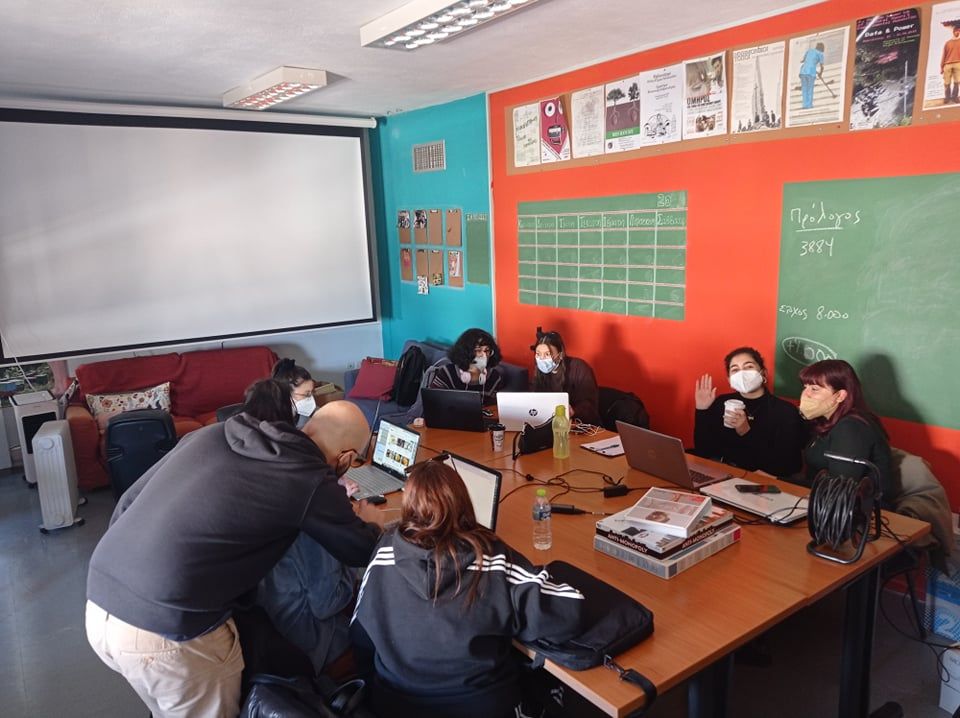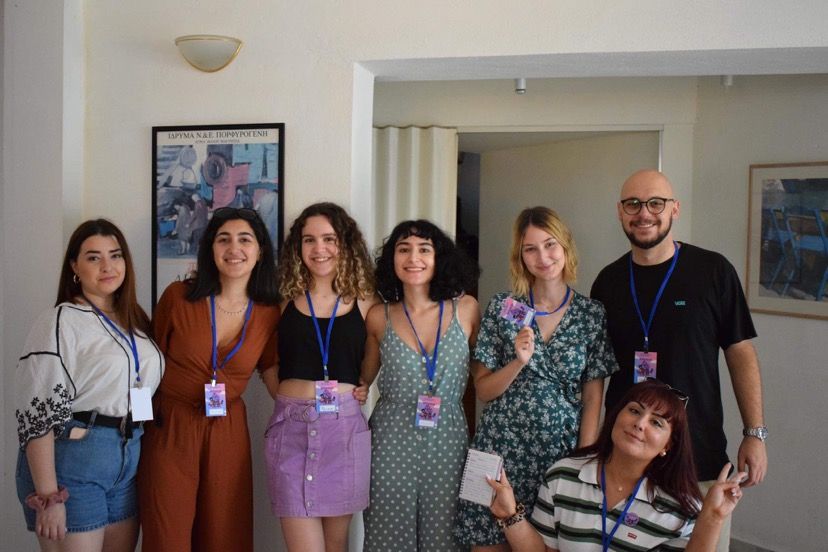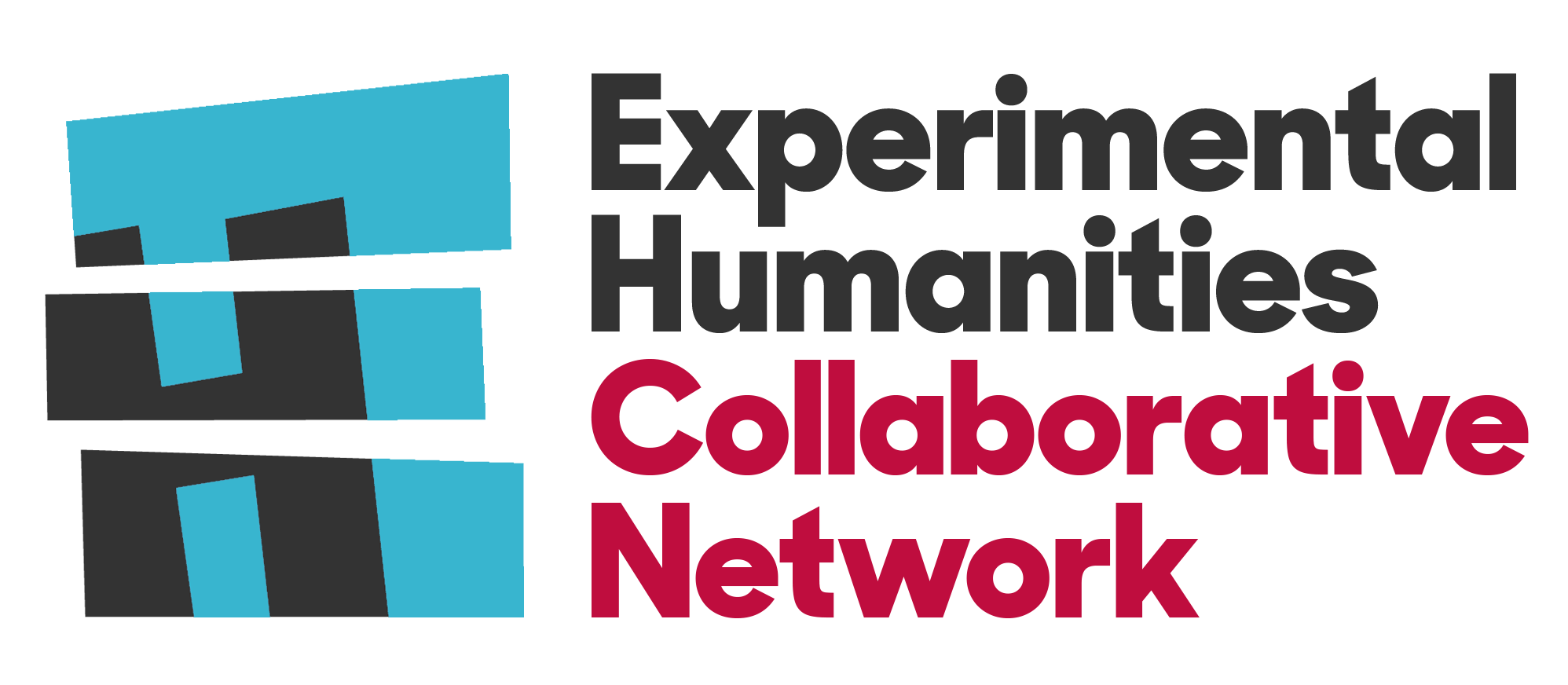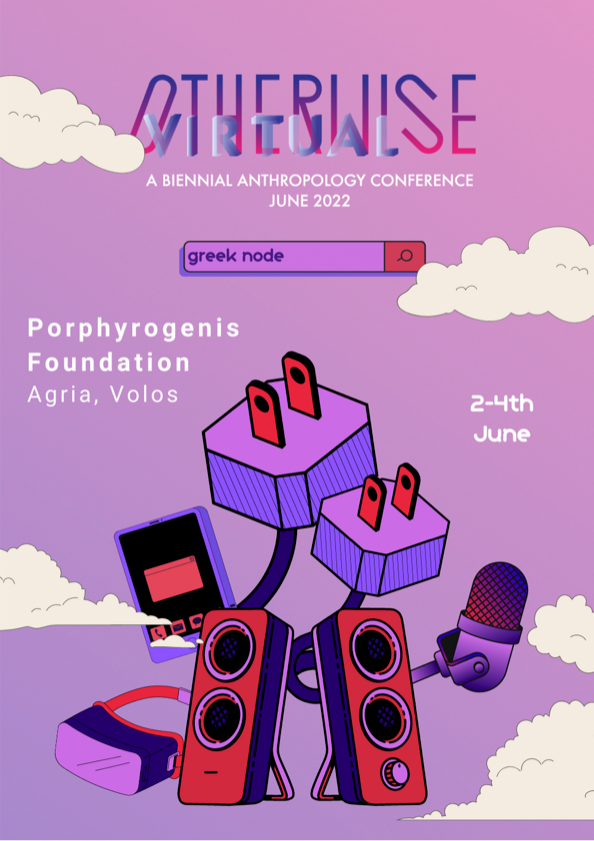Welcome to The Experimental Humanities Collaborative Network
Broadcasting from the 5th Floor -- Season 2
The second season of the Apo to Pempto (Broadcasting from the 5th floor!) podcast takes up the politics of naming and particularly the geographical, social and cultural dimensions of names, gendered genealogies and essentialisms. The podcasts were created for the undergraduate class Digital Storytelling and Multimodal Anthropology.
Polga < Olga < Helga
Olga Parthenidou-Fotou | 7’
Summary: You have seven minutes at your disposal to speak about your name. Don’t ask me what you will say, just say the first thing that come to mind. Don’t tell a banal story though. If you need to, tell a lie… Put in two or three different geographical locations, demonstrate an interesting trajectory that your name has made over time… Add a little sauce, a little spice… and why not throw in that you have two last names instead of one. Wait, what am I saying? That’s all true!
Morosouolaomicron
Dimitra Morosou | 7’
Summary: How political can a first and last name be? Affect is engrained in words but also sounds. A podcast syncs with the time and place that you find yourself and hear a voice that is purposely warped on your headphones. Parallel sounds create a soundscape that exhorts you to perceive yourself as an listener within an experience.
Nefeli. Identity or insight?
Nefeli Zioga
Summary: Nefeli (in Greek “cloud”), a name connected to myth and nature, introduces herself. A flashback through the sounds and etymology of the name demands e-motion on a narrative level. Care and acceptance is the final stage.
This year’s podcast productions aimed to be more artistic productions centered on subjectivies, relations and environments, rather than the “journalistic” or the logocentric style of making podcasts («radio» presenter, talking heads). Thus, the focus was on the formation of soundscapes and the capturing of everyday “ambient” sounds or digital sounds, as a way to explore how we can “do sensory ethnography” or how to do ethnography by exploiting the ontology of sound (as a non-static materiality) to address anthropological concepts and methodologies, such as reflexivity, researcher’s positionality, or how to “bring the atmosphere” of an interview, etc.
Organized by Penelope Papailias, University of Thessaly
Assistant: Penny Paspali, University of Thessaly
Read about Season 1 of the podcast




